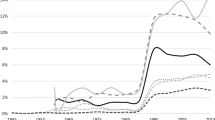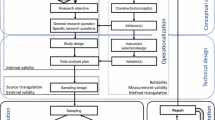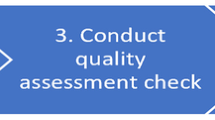Abstract
Social learning among different stakeholders is often a goal in problem solving contexts such as environmental management. Participatory methods (e.g., group model-building and role playing games) are frequently assumed to stimulate social learning. Yet understanding if and why this assumption is justified is quite limited. Difficulties arise from the complexity and context-dependence of processes influencing social learning. Furthermore, continuing discussion of the exact meaning and theoretical basis of social learning result in a limited capacity to assess and evaluate whether social learning has occurred. In this paper we introduce an analytical framework to develop an in depth understanding of essential processes underlying social learning facilitated by participatory methods. Concepts from different fields of science are discussed and integrated, including resource management, small group research and learning research. The individual and group perspectives are brought together via mental models and emergent roles. We added the direction of learning, being either convergent or divergent, to be able to explore if and when personal views on a problem converge into a shared understanding of a problem. The analysis of convergence and divergence of learning is facilitated through the use of the mental model concept. Methods for measurement of proposed indicators for social learning are also discussed. The framework developed provides a conceptual basis for the analysis of social learning facilitated by participatory methods and an operationalization for application in empirical research.



Similar content being viewed by others
Notes
A framework of organizational learning considering these influences as dynamic processes is presented by Crossan et al. (1999).
References
Akkerman S, Van den Bossche P, Admiraal W, Gijselaers W, Segers M, Simons RJ, Kirschner P (2007) Reconsidering group cognition: from conceptual confusion to a boundary area between cognitive and socio-cultural perspectives? Educ Res Rev 2(1):39–63
Argyris C, Schön D (1978) Organizational learning: a theory of action perspective. Addison-Wesley Publishing Company, Reading
Bandura A (1977) Social learning theory. Prentice-Hall, Englewood Cliffs
Cooke B, Kothari U (eds) (2001) Participation: the new tyranny?. Zed Books, London
Craik KJW (1943) The nature of explanation. Cambridge University Press, Cambridge
Crossan MM, Lane HW, White RE (1999) An organizational learning framework: from intuition to institution. Acad Manag Rev 24(3):522–537
Dewulf A, Gray B, Putnam L, Lewicki R, Aarts N, Bouwen R, van Woerkum C (2009) Disentangling approaches to framing in conflict and negotiation research: a meta-paradigmatic perspective. Hum Relat 62(2):155–193. doi:10.1177/0018726708100356
Eden C, Vangen S (1995) An analysis of shared meaning in collaboration. Paper presented at the second international workshop on multi-organisational partnerships: working together across organisational boundaries. University of Strathclyde, Glasgow, 1995
Eden C, Ackermann F, Cropper S (1992) The analysis of cause maps. J Manag Stud 29(3):309–324
Etienne M, Du Toit DR, Pollard S (2011) ARDI: a co-construction method for participatory modeling in natural resources management. Ecol Soc 16(1):44
Flood RL, Romm NR (1996) Diversity management: triple loop learning. John Wiley & Sons, Chichester
Folke C, Hahn T, Olsson P, Norberg J (2005) Adaptive governance of social-ecological systems. Annu Rev Environ Resour 30:441–473
Gilbert NG, Troitzsch K (1999) Simulation for the social scientist. Open University Press, Philadelphia
Haug C, Huitemaa D, Wenzler I (2011) Learning through games? Evaluating the learning effect of a policy exercise on European climate policy. Technol Forecast Soc Change 78(6):968–981
Ison R, Roling N, Watson D (2007) Challenges to science and society in the sustainable management and use of water: investigating the role of social learning. Environ Sci Policy 10(6):499–511
Johnson-Laird PN (1983) Mental models. Cambridge University Press, Cambridge
Jones NA, Ross H, Lynam T, Perez P, Leitch A (2011) Mental models: an interdisciplinary synthesis of theory and methods. Ecol Soc 16(1):46
Kesby M (2005) Retheorizing empowerment-through-participation as a performance in space: beyond tyranny to transformation. Signs 30(4):2037–2065
Kim H (2009) In search of a mental model-like concept for group-level modeling. Syst Dyn Rev 25:207–223
Kolkman MJ (2005) Controversies in water management: frames and mental models. Dissertation, University of Twente
Kolkman MJ, Kok M, Van der Veen A (2005) Mental model mapping as a new tool to analyse the use of information in decision-making in integrated water management. Phys Chem Earth 30:317–332
Lave J, Wenger E (1991) Situated learning: legitimate peripheral participation. Cambridge university press, Cambridge
Levine JM, Moreland RL (1990) Progress in small group research. Annu Rev Psychol 41:585–634
Lynam T, Brown K (2011) Mental models in human-environment interactions: theory, policy implications, and methodological explorations. Ecol Soc 17(3):24
Lynam T, Mathevet R, Etienne M, Stone-Jovicich S, Leitch A, Jones N, Ross H, Du Toit D, Pollard S, Biggs H, Perez P (2012) Waypoints on a journey of discovery: mental models in human-environment interactions. Ecol Soc 17(3):23
Mathevet R, Etienne M, Lynam T, Calvet C (2011) Water management in the Camargue Biosphere Reserve: insights from comparative mental models analysis. Ecol Soc 16(1):43
Mohammed S, Klimoski R, Rentsch JR (2000) The measurement of team mental models: we have no shared schema. Organ Res Methods 3:123–165
Morine-Dershimer G (1992) Tracing conceptual change in preservice teachers. Teach Teach Educ 9(1):15–26
Newig J, Glaube V, Berkhoff K, Kaldrack K, Kastens B, Lutz J, Schlussmeier B, Adensam H, Haberl H, Pahl-Wostl C, Colard A, Aigner B, Maier R, Prunz W (2007) Partizipative Modellbildung, Akteurs- und Ökosystemanalyse in Agrarintensivregionen. Schlussbericht des deutsch-österreichischen Verbundprojekts. In: Matthies M (ed) Beiträge des Instituts für Umweltsystemforschung der Universität Osnabrück, Osnabrück
Newig J, Haberl H, Pahl-Wostl C, Rothman DS (2008) Formalised and non-formalised methods in resource management—knowledge and social learning in participatory processes: an Introduction. Syst Pract Action Res 21:381–387
Newig J, Günther D, Pahl-Wostl C (2010) Synapses in the network: learning in governance networks in the context of environmental management. Ecol Soc 15(4):24
Norman DA (1983) Some observations on mental models. In: Gentner D, Stevens A (eds) Mental models. Lawrence Erlbaum, Hillsdale, pp 7–14
Novak JD, Gowin DB (1984) Learning how to learn. Cambridge University Press, Cambridge
Ostrom E (2009) Understanding institutional diversity. Princeton University Press, Princeton
Pahl-Wostl C (2009) A conceptual framework for analysing adaptive capacity and multi-level learning processes in resource governance regimes. Glob Environ Change 19:354–365
Pahl-Wostl C, Hare M (2004) Processes of social learning in integrated resources management. J Commun Appl Soc Psychol 14:193–206
Pahl-Wostl C, Mostert E, Tàbara D (2008a) The growing importance of social learning in water resources management and sustainability science. Ecol Soc 13(1):24
Pahl-Wostl C, Tàbara D, Bouwen R, Craps M, Dewulf A, Mostert E, Ridder D (2008b) The importance of social learning and culture for sustainable water management. Ecol Econ 64(3):484–495. doi:10.1016/j.ecolecon.2007.08.007
Pahl-Wostl C, Holtz G, Kastens B, Knieper C (2010) Analyzing complex water governance regimes: the management and transition framework. Environ Sci Policy 13(7):571–581
Pahl-Wostl C, Becker G, Sendzimir J, Knieper C (in press) How multi-level societal learning processes facilitate transformative change: a comparative case study analysis on flood management. Ecol Soc
Posner GJ, Strike KA, Hewson PW, Gertzog WA (1982) Accomodation of a scientific conception: towards a theory of conceptual change. Sci Educ 66(2):211–227
Raadgever GT (2009) Does collaboration enhance learning? The challenge of learning from collaborative water management research. Dissertation, Technische Universiteit Delft
Reed MS (2008) Stakeholder participation for environmental management: a literature review. Biol Conserv 141(10):2417–2431
Reed MS, Evely AC, Cundill G, Fazey I, Glass J, Laing A, Newig J, Parrish B, Prell C, Raymond C, Stringer LC (2010) What is social learning? Ecol Soc 15(4):r1
Richter D (2008) Teach and diagnose political knowledge: primary school students working with concept maps. Citizsh Teach Learn 5(1):60–71
Romney AK, Weller SC, Batchelder WH (1986) Culture as consensus: a theory of culture and informant accuracy. Am Anthropol 88(2):313–338
Roschelle J (1992) Learning by collaborating: convergent conceptual change. J Learn Sci 2(3):235–276
Scholz G, Austermann M, Kaldrack K, Pahl-Wostl C (under review) A method to analyse social learning and evaluate group model building sessions by comparing individual mental models and group models
Sendzimir J, Flachner Z, Pahl-Wostl C, Knieper C (2010) Stalled regime transition in the upper Tisza river basin: the dynamics of linked action situations. Environ Sci. Policy 13:604–619
Senge PM (1997) The fifth discipline. Meas Bus Excel 1(3):46–51
Siebenhüner B (2004) Social learning and sustainability science: which role can stakeholder participation play? Int J Sustain Dev 7(2):146–163
Stringer LC, Dougill AJ, Fraser E, Hubacek K, Prell C, Reed MS (2006) Unpacking “participation” in the adaptive management of social–ecological systems: a critical review. Ecol Soc 11(2):39
Van den Bossche P, Gijselaers WH, Segers M, Kirschner PA (2006) Social and cognitive factors driving teamwork in collaborative learning environments: team learning beliefs and behaviors. Small Group Res 37(5):490–521
Van Mierlo B, Leeuwis C, Smits R, Klein Woolthuis R (2010) Learning towards system innovation: evaluating a systemic instrument. Technol Forecast Soc Change 77:318–334
Vennix J (1996) Group model building: facilitating team learning using system dynamics. Wiley & Sons, New York
Acknowledgments
The first author would like to thank Georg Holtz, Nadine Methner, Kathrin Knüppe and Johannes Halbe for critical comments and discussions.
Author information
Authors and Affiliations
Corresponding author
Rights and permissions
About this article
Cite this article
Scholz, G., Dewulf, A. & Pahl-Wostl, C. An Analytical Framework of Social Learning Facilitated by Participatory Methods. Syst Pract Action Res 27, 575–591 (2014). https://doi.org/10.1007/s11213-013-9310-z
Published:
Issue Date:
DOI: https://doi.org/10.1007/s11213-013-9310-z




